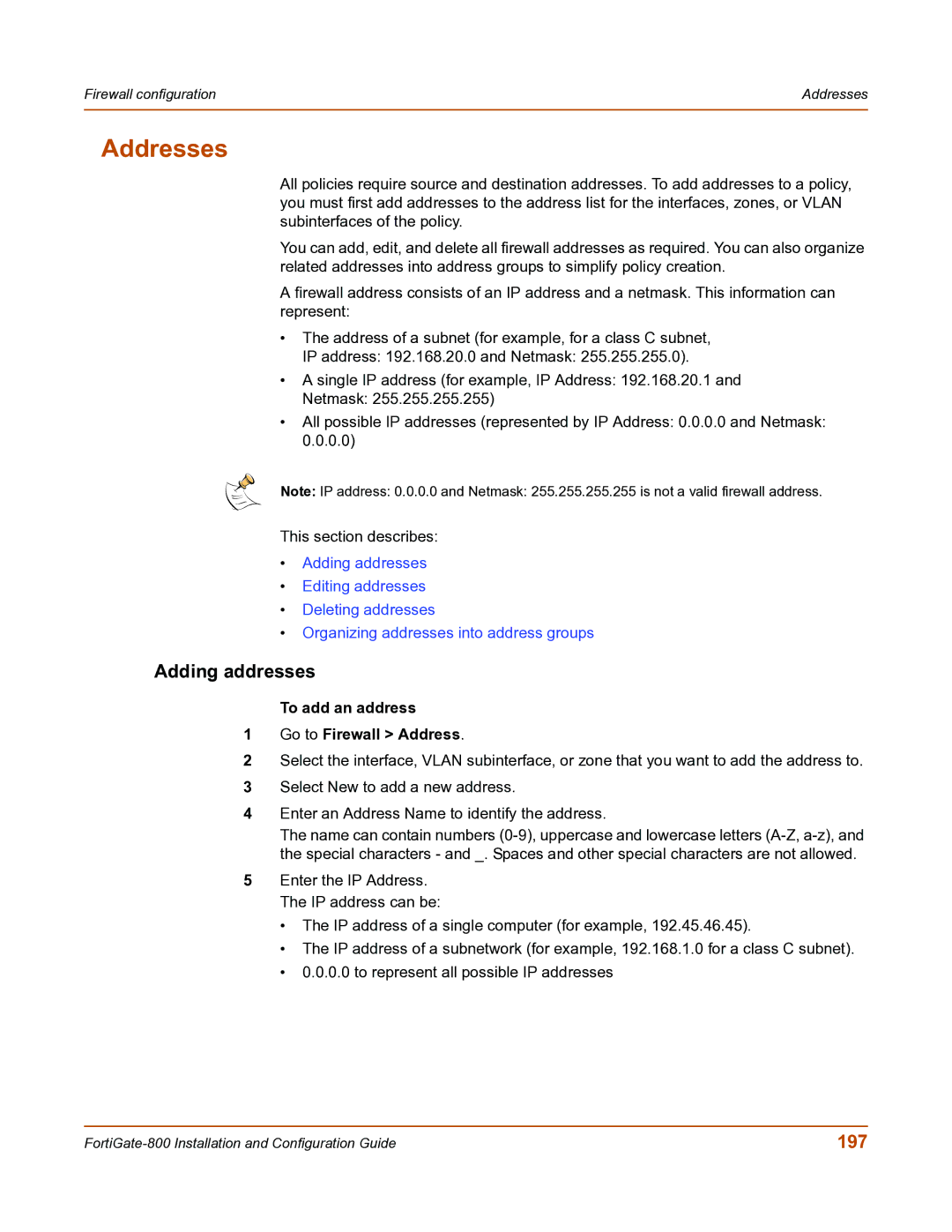
Firewall configuration | Addresses |
|
|
Addresses
All policies require source and destination addresses. To add addresses to a policy, you must first add addresses to the address list for the interfaces, zones, or VLAN subinterfaces of the policy.
You can add, edit, and delete all firewall addresses as required. You can also organize related addresses into address groups to simplify policy creation.
A firewall address consists of an IP address and a netmask. This information can represent:
•The address of a subnet (for example, for a class C subnet, IP address: 192.168.20.0 and Netmask: 255.255.255.0).
•A single IP address (for example, IP Address: 192.168.20.1 and
Netmask: 255.255.255.255)
•All possible IP addresses (represented by IP Address: 0.0.0.0 and Netmask: 0.0.0.0)
Note: IP address: 0.0.0.0 and Netmask: 255.255.255.255 is not a valid firewall address.
This section describes:
•Adding addresses
•Editing addresses
•Deleting addresses
•Organizing addresses into address groups
Adding addresses
To add an address
1Go to Firewall > Address.
2Select the interface, VLAN subinterface, or zone that you want to add the address to.
3Select New to add a new address.
4Enter an Address Name to identify the address.
The name can contain numbers
5Enter the IP Address. The IP address can be:
•The IP address of a single computer (for example, 192.45.46.45).
•The IP address of a subnetwork (for example, 192.168.1.0 for a class C subnet).
•0.0.0.0 to represent all possible IP addresses
197 |
